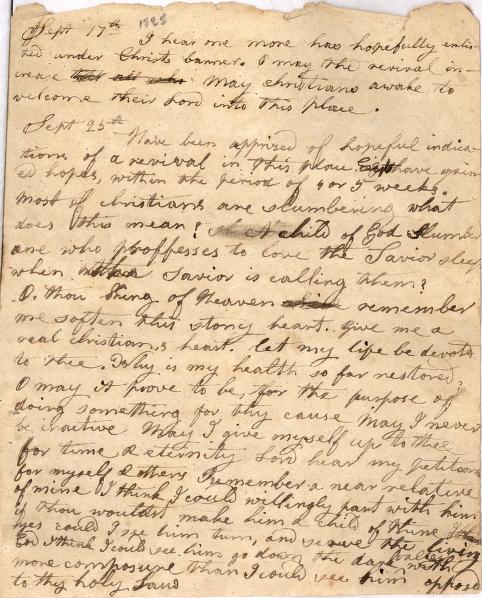




Advanced Search
| Online Collection |
|
|||||||||||||||||||||
|
The Great Awakening, in the late 1730s, initially sparked the type of Protestant religious revival on which Sophronia Grout reflects in her diary. While revivals waned in the decades surrounding the Revolutionary War, they did not die out completely. The Second Great Awakening grew fifty years following the Revolution, as many American Protestants came to believe that as minister Charles Finney claimed, "God made man a moral free agent." This belief democratized salvation by giving individuals the confidence that their actions and faith could bring them salvation, an idea which diverged from earlier Protestant beliefs of predestination where only God's chosen few were believed to be saved. Grout rejoices in her diary that one more person has come "under Christs banner" and hopes that all "christians awake to welcome their Lord into this place." This sentiment reflects an element of the Second Great Awakening where evangelical Protestants became activists in their approach to Christianity. They sought to convert the masses and believed that when all of society reformed and became Christian, it would hasten the second coming of Christ.
|
Two pages from diary of Sophronia Grout on Religious Revival
|
| |
Home | Online Collection | Things
To Do | Turns
Exhibit | Classroom | Chronologies | My
Collection
About This Site | Site Index | Site Search | Feedback


